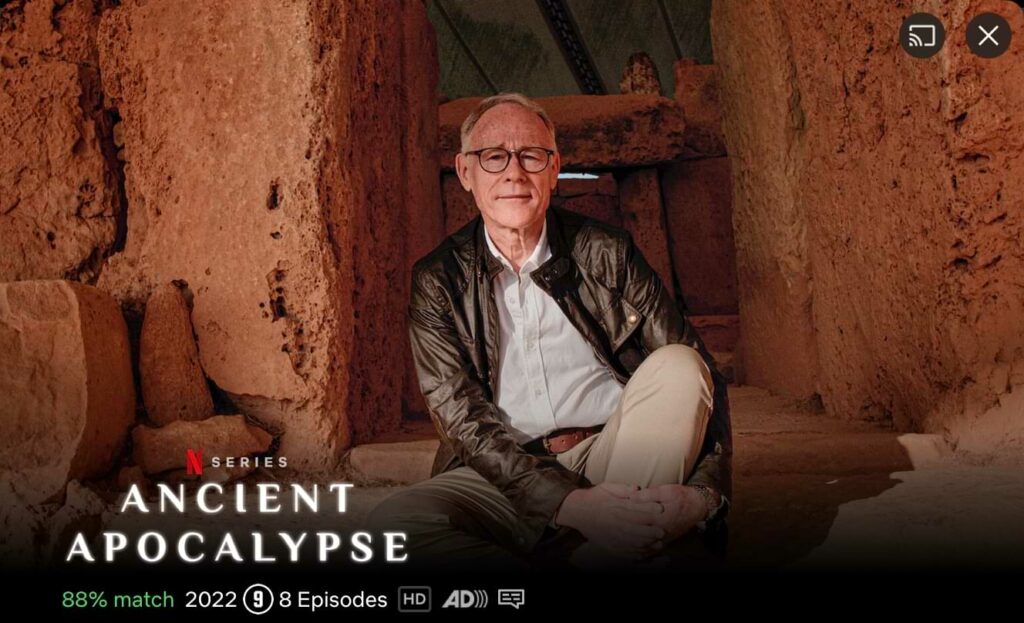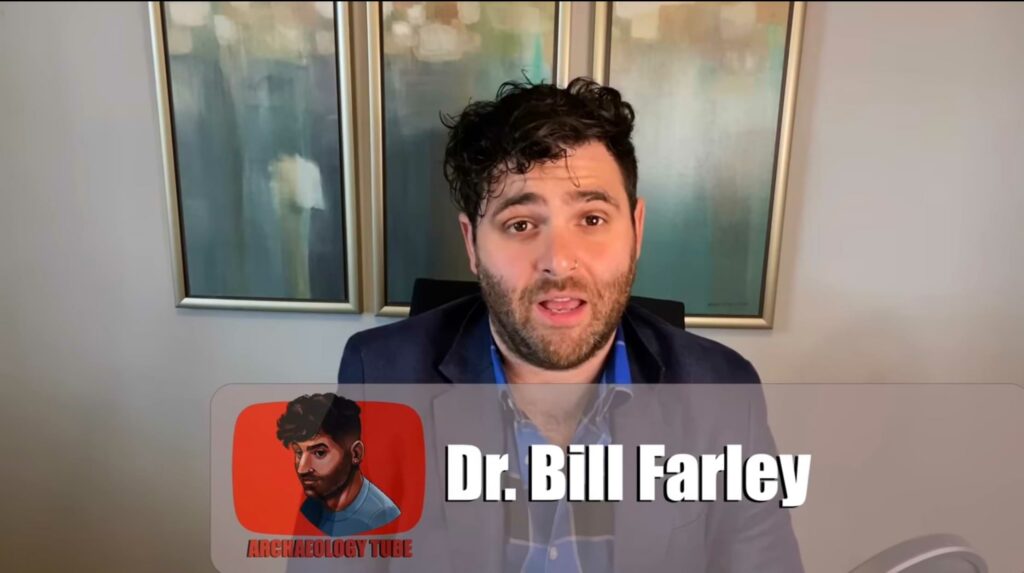Lots of people seem to be enthusiastic about a Netflix series called »Ancient Apocalypse« by journalist Graham Hancock. So I checked it out, but stopped after the intro of the first episode. Here’s why …
The Beginning of the Apocalypse

Hancock, his books and the series apparently are building on ancient stories like that of Atlantis (made famous e.g. by Ignatius Donnelly in 1882). The common thread in all these myths is that once there was a highly developed culture, more sophisticated than ours, that was wiped out by some catastrophe. However, some members of that culture survived and spread their knowledge all over the world.
Well, as a teenager I liked Dononvan’s Atlantis and so I started Netflix, searched for apocalypse and started the first episode. The intro ends with Hancock stating that …
Perhaps there’s been a forgotten episode in human history. But perhaps the extremely defensive, arrogant and patronizing attitude of mainstream academia is stopping us from considering that possibility. I’m trying to overthrow … the paradigm of history.
Netflix, Ancient Apocalypse, Intro to episode 1
The extremely defensive, arrogant and patronizing attitude of mainstream academia? What kind of language is that for a documentary? So I stopped the show right there and thought I might as well have a look at what the mainstream academia are saying about his theories before I get hooked in a well produced show and sit through eight episodes of a modern Erich Däniken.
Hancock and Mainstream Archaeology

A short google brought me to Archaelogy Tube, a YouTube channel by mainstream archaeologist Dr. Bill Farley, who has published a 10 minute response to Ancient Apocalypse and shortly after a 25 minute video called »Graham Hancock and Ancient Apocalypse: Debunking Myths About the Netflix Show«.
In the debunk-video he talks about several myths mentioned in the Netflix series. Chapters are called Clovis First, Grant Funding, Radiocarbon Dating, Younger Dryas Impact, Who built Gobeki Tepe? and What are archaeologists hiding?
In the last chapter, Farley asks Is it possible that Hancock is right? and his answer is »Sure. Of course it is.« Mmh. Extremely defensive, arrogant and patronizing? Farley then goes on to explain:
The problem with what Hancock is that he presents it as this sort of us versus them anti-intellectual thing, like we’re trying to block his research. It’s not true.
We’re simply asking him to give us the evidence. Show your work and tell us how you came to these conclusions without them being conjecture. But he says „Well, I’m a journalist, I’m not an archaeologist, I’m just here to ask questions.“
Well, that’s fine, but you’re not going to change the textbook of what we think about the past and what our interpretations are with nothing but questions and conjecture. You need to also bring some evidence.
Dr. Bill Farley – But Is Hancock Right?
Farley ends his video by saying »We love the enthusiasm that we have seen from so many people this week who are invigorated by some of the things that Hancock says. So come on and hang out with us.« Extremely defensive indeed, and arrogant, and so patronizing.
Language Matters
One thing I strongly disliked even in the first few minutes of the show is Hancocks language. Extremely defensive, arrogant and patronizing mainstream academia. I think that in this time and age of anti-intellectualism and anti-expert resentments embraced by right wingers this kind of talk is right-out dangerous.
Apparently archaeologists criticizing Hancock have already received hate mails and threats. Flint Dibble, archaeologist from Cardiff, put it this way:
Netflix labels Ancient Apocalypse a docuseries. IMDB calls it a documentary. It’s neither. It’s an eight part conspiracy theory that weaponises dramatic rethoric against scholars.
Flint Dibble on theconversation.com
So, I haven’t watched it yet. Don’t know if I will. Maybe I better stick to the memory of Donovan singing Way down below the ocean …
